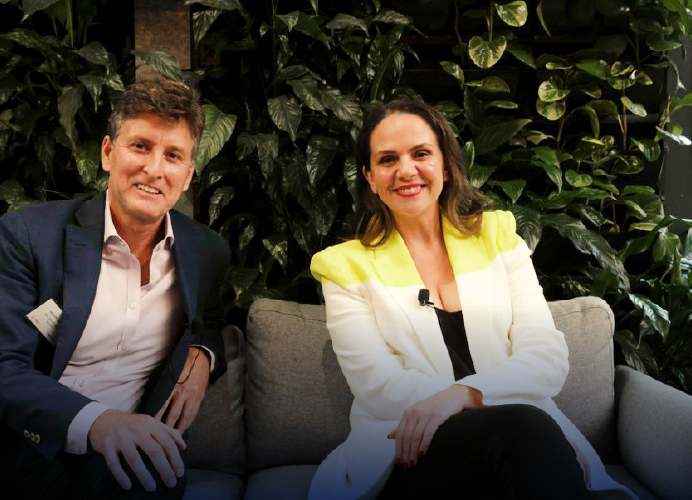Introduction
We are excited to share the next instalment from our recent Agents of change for organisational wellbeing event held in our Sydney HQ. This session’s panel brings together two high-profile Australian managing directors who have become personal agents of social change across their ever-expanding ecosystems of influence.
Hosted by Christopher Marr, our co-founder and CCO, this session’s wonderful guest speakers were:
- Steven Worrall, Managing Director ANZ, Microsoft, and the founding Chair of the Corporate Mental Health Alliance; and
- Melanie Silva, Managing Director and VP ANZ, Google.
Event video
We invite you to enjoy the video of Steven and Melanie’s session:
Panellists
Steven Worrall
Managing Director ANZ, Microsoft Founding Chair, Corporate Mental
Health Alliance
Steven is responsible for ensuring Microsoft meets the needs of its customers and the more than 10,000 partners and independent software vendors that sell or build on the Microsoft platform in Australia and New Zealand. Prior to joining Microsoft 8 years ago, Steven worked for IBM for 22 years and held a number of marketing, sales, and general management roles in the services, software and financing segments of the organisation.
Steven is the founding Chair of the Corporate Mental Health Alliance in Australia and is the Microsoft Global Indigenous Employee Resource Group Executive Co-Sponsor. Steven is committed to a sustainable and inclusive future and is a founding member of the Australian Climate Leaders Coalition and is Chair of the New South Wales Skills Board.
Melanie Silva
Managing Director and VP ANZ, Google
Melanie is responsible for ensuring the organisation delivers on Google’s mission for users and the community, supporting the amazing teams in both countries, and overseeing the work it does across sales, partnerships, and platforms to help businesses grow. Prior to Melanie’s 15½ year tenure at Google, her finance and economics background saw her spend time at companies such as Citibank, AMP, ING Direct, and more.
Christopher Marr
Co-founder and Chief Commercial Officer, Sonder
Christopher has dedicated his life to serving others, previously serving 20 years as an Australian Army officer, including 10 as a leader and commander in the special forces. His role at Sonder is to lead the commercial strategy and growth of the company, both domestically and internationally. He is committed to addressing the world’s burgeoning health crisis by disrupting the way people access help.
Transcript
[00:00:00] Christopher Marr: Hello everyone. Welcome back. Hope you enjoyed your lunch. Please do continue eating. So, no offence taken at all, enjoy the wonderful lunch, enjoy the drinks.
But I’m excited to welcome the second panel to the stage, Steven Worrall and Mel Silva.
First up, Steven Worrall keeps himself busy, of course, as the Managing Director of Microsoft for ANZ. Chair and Founder of the Corporate Mental Health Alliance Australia. So, comes with this huge reputation for wellbeing and making true and really meaningful impact against the problem.
Prior to joining Microsoft about eight years ago, Steven spent nine years at IBM, managing and leading teams across Asia and the Pacific region. Alongside Steven is Mel Silva, the Managing Director and Vice President for Google for ANZ. Before the 15 odd years, Mel, at Google, your finance and economics background saw you spending time at leading businesses like Citibank, AMP, ING Direct, and a couple of others.
So welcome to both of you, thanks for joining.
Now, Mel, you and I had a quick chat yesterday, but I’d like to start with you, if you don’t mind. You had a baptism of fire, many would say, when you were brought back from Singapore to take on the MD role for Google ANZ. Just weeks into your tenure, global protests erupted over the company’s global handling of some sexual harassment claims that related to some senior executives. Suddenly workplace culture, of course, was front and centre.
You’ve taken over as a leader in this really important region and you took the bold move to walk out with staff. Can you talk to us a bit about that in the context of being an agent of change? Because that’s precisely what you did.
[00:02:03] Melanie Silva: Yeah, well look, I think the reality is, in that moment, it didn’t feel like it was this huge, big, brave thing. It felt like, I’ve been working for this organisation for a really long time, I know the people, I feel the issue, and this is our culture. Our culture is when you don’t like something, you can speak up, you can speak up respectfully. And you do it, and you support each other and have each other’s back. So, I think I was a bit more surprised with the conversation afterwards than I was with the actual feeling of doing it.
And look, at the end of the day, was it a horrible situation that prompted us to walk out? Hell, yes. Did it all make us go, hey, what is this situation, this is not the Google that I know? Yes. But as a leader, I think you kind of end up thinking, well, how do I, not make lemonade or make light of it, but how can I turn this into an opportunity to engage with people?
And so, I’m actually really proud of the conversations that happened after that walkout, and I probably didn’t think about it at the time, but me being there and me walking out with them made people feel comfortable telling me what was going on.
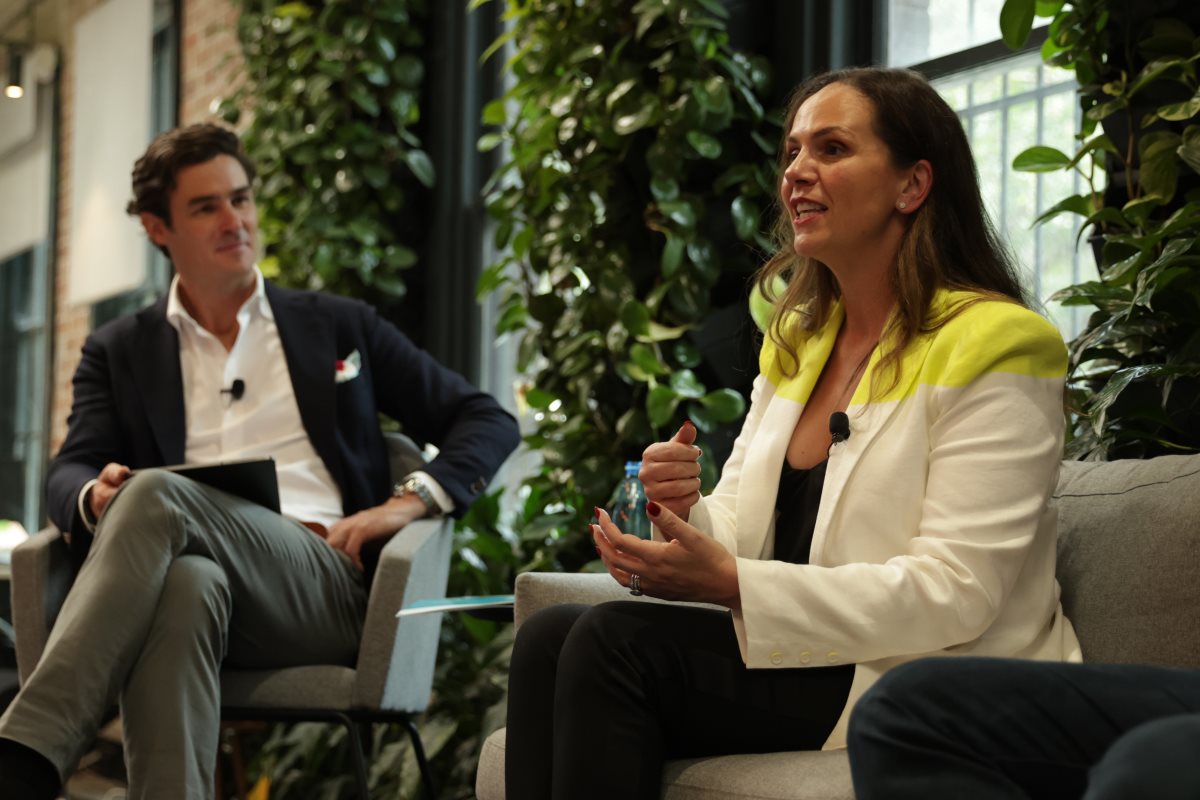
[00:03:16] Christopher Marr: Mel, forgive me, this is meant as a very, very humble gesture, but that actually speaks volumes. Because the fact that it wasn’t a position, it didn’t to your mind, take courage, it was just, that was your culture, your leadership shining through. And probably the culture of the organisation that promoted you to think that way.
[00:03:35] Melanie Silva: I mean, look, don’t get me wrong, I think there were people who were… particularly in the Communications department… For those of you who don’t know the physical location of Google’s office, there’s us, there’s a big park in the middle, and across the road is Fairfax. So, the walkout was going to happen pretty much in the Fairfax front yard.
So, there was like a tap on my shoulder of, now you know that if this happens, it may end up being in the… But look, I’m not going to choose the hearts and minds of 2,000 people over a headline for a day.
[00:04:15] Christopher Marr:Yeah, good on you. Thank you. I mean, that’s what this whole thing is about, agents of change, and it’s really putting that first. So, thanks for sharing that Mel.
Whilst we’re on that, and talking about you, you gave birth in February this year? Sorry, February last year.
[00:04:32] Melanie Silva: February, two years ago nearly.
[00:04:33] Christopher Marr: Two years ago.
[00:04:34] Melanie Silva: I know, he’s nearly two. Can’t believe it.
[00:04:35] Christopher Marr: Congratulations, that’s awesome.
[00:04:36] Melanie Silva: Thank you, so cute.
[00:04:37] Christopher Marr: So February, a year and a half ago, 2021, you were sort of almost famous for taking 12 months of maternity leave, and that really, I think as a leader in an organisation, such a respected leader in such a significant organisation in a really visible place, must have had a huge impact on your staff. Can you tell us a bit about that, why it’s important and how do we encourage people and organisations to take a similar approach?
[00:05:06] Melanie Silva: Yeah, well, look, I mean I think maternity leave is just part of life, right? And I actually compare myself to my global colleagues and I think how lucky we are in Australia. I mean, look, there are some countries who do it much better than us in Australia. But how lucky we are to have that year, and it’s a year you never get back. This is my third child – 12, 9, 2 – we’ll talk about that one…COVID…
But you’re not going to look back on your life and say, God, I wish I went to more meetings, God, I wish I went to more off-sites. I’ve read too many business books where the last chapter is, gosh, I had such great success, but I wish I had spent more time with my children. Ain’t going to be me. Right? And so was I trepidacious about having that conversation, considering the role? Absolutely. But I got the best response from my boss. For all of you leaders in the room, my best advice, when someone comes and tells you that they are pregnant, you say, congratulations. Congratulate. That’s the first, most human thing to say. He empowered me to put a plan in place to cover the leave.
“I got the best response from my boss… He empowered me to put a plan in place to cover the leave.”
—Melanie Silva
Managing Director and VP ANZ, Google
It was a rough time, we’re going through a pretty rough time as business at the moment, but let’s fast forward to, instead of hearing that news that someone in your team is expecting and thinking, oh, how am I going to close that gap, this is such a problem, how am I going to fix this? How do you turn this into an opportunity? Because I have come back. Two people took on my role while I was gone. They have had the experience of a lifetime. They have had the development opportunity that I could not have possibly curated for them if I had the best, hottest HR people, which I do, she’s here! But I could not have, you know.
But I think the domino effect was about 12 people across my organisation ended up stepping up to take on a new role because of my maternity leave.
“The domino effect was about 12 people across my organisation ended up stepping up to take on a new role because of my maternity leave.”
—Melanie Silva
Managing Director and VP ANZ, Google
So mine gets split, then people step up to take their job, then people step up to take theirs. I’ve come back to a team that’s bigger, better, stronger, faster than anyone, and it’s allowed me to come back and be more strategic and they can keep doing some of that stuff. And so, it’s kept the business fresh.
I mean, if you just think about maternity leave, parental leave, any kind of extended leave, even if you’re going to work with, you know, caring for your elderly parents, whatever it is, it’s an opportunity to develop some of your really hot talent. If you can change that mindset, I think we’re all in a much better place.
[00:07:57] Christopher Marr: Thanks, Mel. Now, Steven, both Microsoft and Google as I understand, have about 150,000 employees worldwide.
[00:08:03] Steven Worrall: Sounds about right.
[00:08:03] Christopher Marr: About right. Workforces that are growing at an impressive clip. I understand they’re both growing about 10% per annum, and with a base of 150,000, it’s really, really meaningful.
Where do you think Silicon Valley is going right, and where are they going wrong with respect to workplace health and wellbeing at scale?
[00:08:24] Steven Worrall: I’m very happy to get to that, but I have to start with an acknowledgement of Mel’s sneakers.
[00:08:28] Christopher Marr: Oh yeah, good.
[00:08:32] Steven Worrall: And we just rushed into the conversation, and I love the serious nature of the questions, they’re fantastic.
[00:08:40] Christopher Marr: Can we get a close in?
[00:08:43] Steven Worrall: What’s your name, mate? G’day Steve. You must get a close-up. Cause these sneakers are very well travelled. The last time I saw Mel was, I don’t know, two months ago or six weeks ago at the Prime Ministerial Dinner.
[00:09:00] Christopher Marr: No big deal.
[00:09:01] Steven Worrall: No big deal. Ballroom in the Wentworth Hotel, or one of the big hotels. Mel did a wonderful vote of thanks at the end of the dinner wearing these wonderful sneakers. So, I just thought it was awesome, to see you there that night delivering that wonderful vote of thanks, and to be wearing those sneakers. And they’re here again today, this is fantastic. I’ve asked Mel for a bit of coaching because I’m very boring with these.
[00:09:22] Melanie Silva: They’re a beacon of wellbeing.
[00:09:24] Steven Worrall: They are, so true.
[00:09:25] Melanie Silva: Because any woman who has worn heels knows that they’re not good for your wellbeing, are they? So, I’m trying to carve a path, liberate women from having to wear heels.
[00:09:40] Steven Worrall: It’s working, I’m going to be in there next time you see me.
[00:09:41] Christopher Marr: Actually Chris and I, both of us could take…
[00:09:43] Melanie Silva: I’ll give you a coaching session.
[00:09:45] Christopher Marr: Give me some reprieve from heels, you know.
[00:09:46] Melanie Silva: Let Steve talk about wellbeing itself.
[00:09:48] Steven Worrall: So to your question, look, I don’t know that I’m an expert on what the West Coast or Silicon Valley is doing in terms of wellbeing. I can make some observations about what’s happening inside our business and compare and contrast here in Australia and New Zealand with what’s happening in the US and other parts of the world.
And I’ll start by saying I don’t know that there’s any distinction here in terms of some countries are doing this particularly well or others are doing it particularly badly. What I do see is an awareness that this is becoming more and more important as a topic. Of course because of the pandemic. If we were worried about mental health in the workplace prior to the pandemic, then we most certainly are concerned or worried about it now, because of the reality of every single day in our workplaces, we see the impacts of poor mental health showing up. And if you haven’t seen that in your team today, then you probably haven’t been looking carefully enough because the signs are all there, right? You really just have to be looking for it and be having that conversation.
“The reality of every single day in our workplaces, we see the impacts of poor mental health showing up.”
—Steven Worrall
Managing Director ANZ, Microsoft, and the founding Chair of the Corporate Mental Health Alliance
And so I think the awareness is consistent. I think the practice varies based on what I see inside Microsoft. And some of it is cultural. For reasons that I’m sure I don’t understand, Australia and New Zealand seems to be a little ahead, at least in the dialogue and the conversation. I was chatting with Lawrence before we started. In saying that, I quickly will add that I don’t suggest for a moment that our practice is necessarily better, but there’s a lot more conversation going on if I compare what’s happening in Australia or New Zealand with other parts of Microsoft.
Is that because the issues here are more pronounced? I don’t know. Perhaps. Is that because culturally it’s becoming more acceptable for us to have this conversation in an open way?
I’ve been around a very long time in the industry and when I started at IBM, this wasn’t a conversation that you would have had. I can see one of my old colleagues here, back in the day, and it wasn’t just IBM, but back then, it was a matter of just get on with the job. Right? Suck it up and move along. You wouldn’t have the conversation about wellbeing or certainly mental health that would trigger other questions inside the organisation in terms of whether you were fit for that role or fit for the company.
So, I think we’ve matured. I think the conversation is more open here than elsewhere, but I think practice in terms of actually impacting mental health in the workplace and doing the work, I think we’ve all got a very long way to go.
[00:12:14] Christopher Marr: And Steven, you founded the Corporate Mental Health Alliance Australia. You chair the Alliance. It’s got some of the biggest and most sophisticated brands that makes up the board and makes up the constituency of this Alliance. Can you tell us a bit about why you formed it, what its mandate is, and how you’re making impact?
[00:12:36] Steven Worrall: Yeah, look, a quick comment…formed it, it was just an idea that came from a colleague at work. And so, there have been many people that have contributed to get to this point, so I won’t for a second suggest that it was my idea or that it’s one person because it quite obviously is not. And I think the message that I’d love to leave with everyone is that this is a topic for everyone, right?
There’s no expert, there’s no founder, there’s no centre of knowledge on this topic. I think the reality is we all need to learn and grow together.
“I think the message that I’d love to leave with everyone is that [mental health and wellbeing] is a topic for everyone… we all need to learn and grow together.”
—Steven Worrall
Managing Director ANZ, Microsoft, and the founding Chair of the Corporate Mental Health Alliance
And one of the reasons why I was so excited about today’s conversation is that I get to join with Mel. This is a conversation that transcends any elements that relate to our business. This is something about, what society do we want to contribute towards?
And I think it’s something that every leader acknowledges, which has been one of the great things about their lives because it does have some of the country’s largest organisations involved. Coles and Woolies are two of the participants, and it’s funny to sit in rooms with them because they openly state that this is the only room in the country that they would come and sit in together. Because when they walk out of that room, they’re at each other’s throat.
But when you look at the statistics – and not to get too sober – but you look at the statistics across the country and you think about the number of people that die by suicide on any given day, you might not be surprised to know that impacts some of our largest companies, within their organisations, based on statistics once a month that might happen inside some of our largest employers. And you imagine the impact that has to that team, to that organisation. What impact that should have to all of us, regardless of whether that’s happening inside your organisation. Because the statistics are shocking.
And so that’s one end of the mental health spectrum, of course. But I go there because the Alliance is founded on this belief that we can and need to do better. That mental health in the community is an issue that we should all be concerned about. The workplace has such an important role to play because if you have a great job, your mental health is supported, you’re in a positive place. And we know that organisations can do so much more to create the conditions in which not only mental health is put in a positive place, but we create psychological safety so that people can come to that workplace and do their very best work.
And so it’s a privilege, quite frankly, to work alongside some of the largest organisations in the country because we feel very passionate about the role that we can play. We represent 500,000 working Australians, which is awesome. So, it’s representative. But we’re not a membership organisation, we’re not set up to serve members only. There are 13 million working Australians, 13 million Aussies that got up today, some of us here, to go to work. And what we aspire to help create are the conditions in which every workplace across the country can improve. And so that as a nation we can address some of the impacts of poor mental across the community.
[00:15:39] Christopher Marr: Thanks, Steven. So John Burson, within this paper, speaks about the healthy organisational maturity model, which is a four stage model starting with basic safety, almost like Maslow’s hierarchy, to go to pop psychology for a moment. So basic safety, wellbeing, moving up through to embedded culture and ultimately leadership.
Mel, to you first, what influences do you feel are most important in evolving the right culture within an organisation?
[00:16:11] Melanie Silva: Look, I think there’s a whole bunch of dimensions and I would actually hate to stack rank them. But let me just go through a couple that I think really have a multiplier effect.
I think one is the importance of sharing your culture as early as possible. And I mean, our hiring. To be really clear with people on the way in – here’s what our culture is about, here’s what you’re expected to do, here’s what it will offer you, but here’s what you are expected to contribute to it. I think that’s so important.
Just to make sure that that’s clear and to make sure that your organisation is hiring for culture. I mean, we’ve all got a skill shortage at the moment, so I guess the temptation is, hey, someone can come in and do this job, but if you know that they’re going to have a detrimental effect on up to 10 or 12 people, wait, because you will be spending way more time sorting out that mess, right?
So, hire for culture and be as clear as possible about the culture. I think the other thing is making sure that people feel like they contribute to that culture, and that’s being heard, it’s being included. And the biggest one of all is how we grow and develop managers. In all of the things that Steve was talking about, that first line of defence, if you are doing everything well, is a manager. A manager is going to see that something’s not firing today. A manager is going to see that there’s something going on here, or “Where has Chris been for the last couple of days?” To kind of fire off the welfare look and see. I think managers have a huge multiplier effect in creating that culture.
But I guess you’ve got to also contribute to what’s that? What does that person feel as an individual? How is my impact being rewarded? How am I getting that sense of achievement and that accomplishment?
And again, as Steve was saying, when you’ve got a good job and you feel like you’re contributing to something, that is a huge factor in offsetting other things that might be going a little bit off kilter in your life.
And I would hate to be kind of…I don’t think we smash it out of the park every day, I think we try hard every day, We get it wrong probably a lot, but we try, and we all try, and all of our managers try to make sure that it is a huge part of our culture. We just know we get more out of people when they feel like they can bring their whole selves to work. And that means, you know, when you’re not having a good day, that you can talk to someone about it too.
[00:18:38] Christopher Marr: Mel, you spoke about leaders calling it out and having, it’s almost like this sort of tactile element where you know your people so well and they know you so well that you’ve got the courage and the respect and the culture that enables that. I think Beck, sorry Heidi, you spoke about that as well in the earlier panel, didn’t you, which I thought was really interesting.
So, Steven, when we think about that, the job of leaders, not just making sure that operationally we’re driving the right outcome that hits the bottom line, but that we are fostering that culture, that development, how do you think about engaging with your leaders in order to sort of inculcate that aspect of culture?
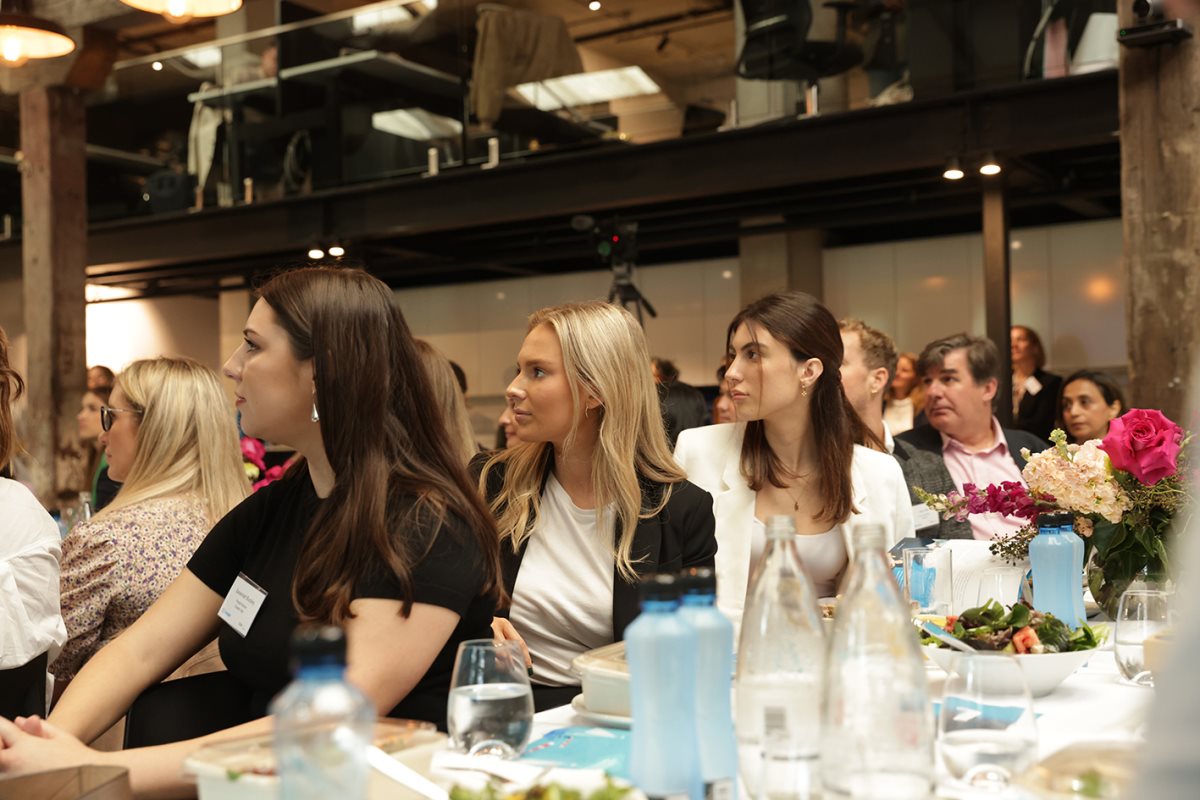
[00:19:22] Steven Worrall: Let me come to that, but I wanted to make a quick comment on Mel’s thoughts. I agree with everything Mel said. The other thought I’d add to that, and it came through the Alliance. One of the great things of the Alliance is that we get to plug into all of the experts – people who actually know what they’re talking about when it comes to mental health. Because business leaders, to be fair, none of us are experts. We’re experts in our business and experts in our culture and our organisations, but when it comes to mental health, there are people out there that are expert.
And Sharon Parker from Curtin University shared this with the Alliance last year that stuck with me, this idea of job design. And again, I was chatting to Lawrence about this, and it was a moment where I was just sitting there thinking, oh my gosh, how often do I get that wrong? Because I couldn’t agree more with Mel. We do get it wrong regularly, right, and that’s part of learning and growing.
But job design, I think, is one of the key issues here because in a business like ours – and I know it’s the same at Google – we’re growing fast, there’s so much opportunity, it’s awesome, right? And you’ve got this great feeling of, wow, we’re joining this organisation, we’re having a great time, but guess what, there are resource misalignments all the time; resources that don’t meet the job or the job that wasn’t designed particularly well and we haven’t quite worked out how we should get it done. And yet the expectation from our clients and partners is, well find a way, innovate, get it done. And if anyone’s going to do it, of course it’s going to be Google or Microsoft. Puts intense pressure on our teams.
And so, I’m coming now to your question. I think there’s no single answer, no silver bullet, but this conversation helps. Because when I sit down with my leaders, and I did it, we have a people leader call once a month, and it just happened to be this morning. It’s this conversation about, here we go again, another financial year, we’ve had a good start, however, these are the pressures that we’re all feeling. I want to open up the channel for conversation about what’s working and what’s not. I want you to know that I think these are a couple of areas that I probably didn’t get right in the first quarter and some things that I’m reflecting on that I want to improve on as I come into the next quarter, I’d love to hear what your reflections are.
And in so doing, you create – this is about psychological safety. You create an environment where it’s okay to say things aren’t perfect. We haven’t got the right resourcing over here and the reason we didn’t win that contract or we didn’t execute as well as we thought we should, was because of these very valid reasons. Sometimes it is poor performance and sometimes other things that you really hate to see, right? But you’ve got to open up that dialogue so you can have an honest conversation. And I think that’s sort of the starting point.
“This is about psychological safety. You create an environment where it’s okay to say things aren’t perfect… we didn’t win that contract or we didn’t execute as well as we thought we should… you’ve got to open up that dialogue so you can have an honest conversation.”
—Steven Worrall
Managing Director ANZ, Microsoft, and the founding Chair of the Corporate Mental Health Alliance
[00:21:58] Christopher Marr: Steven, when you think about you’re both running huge and very, very sophisticated organisations with huge brands. And when you think about the people, you spoke about the stress, when there’s a client that says, hey, great, just get it done, and you’ve got these sort of burgeoning challenges within your organisation, how do you balance those two tensions between the wellbeing of your people and the burnout and all those sorts of things in a labour market that’s really, really difficult, particularly when you’re hiring for culture – to your point, Mel – and making good on the promise to customers?
[00:22:38] Steven Worrall: I think, in our roles, and in all of our roles, there’s this tension, constant tension between the short term and the long term. And I think part of the reason I am, we are so invested in the Alliance is the realisation that this is part of the future success of our organisation, and the country for that matter, right? That is the conditions in which we create psychological safety and where our teams legitimately feel and can honestly say, yes, I feel that my employer – in this case, Microsoft – when I walk in the door, I feel safe to call out issues and to have a conversation about things that are going on, either at work or at home.
To Mel’s point, we know when that occurs, that we get the very best performance from the business discretionary effort. You get teams that achieve things that you didn’t think were possible, right? We talk about that all the time. Let’s innovate and find a way forward. And you’re thinking, oh, I don’t know how this is going to get done. And guess what? The team come back, and they’ve not only got it done, but they’ve come up with four other ideas as to how we might get it done even better tomorrow.
So, I think you want to balance the short term and the long term, but you’ve got to do the work. This is a bit of diversity and inclusion as well. Listening and learning about the different communities in your organisation and in society that you feel aren’t being represented as well as they could inside your organisation.
What are you doing to connect with those different racial groups or how are you connecting with the LGBTIQ community? How are you thinking about Indigenous affairs in the country? What’s your point of view on constitutional reform of the Indigenous voice, et cetera, et cetera. Doing the work, listening and learning, and then being in a position to act in a thoughtful, considered measured way, from my experience, is the way to then put yourself in the best place to deal with the short and the long term.
Because short term issues will come along. If your constant reaction is, we’re just going to have a 5 alarm fire – to use a beautiful US expression that I’ve heard too often – where this is going to be life or death, we’ve just got to get it done. I had that for 20 years in my career, and you just tune out after a while. I mean, how many life and death situations can one person live through?
So, to have an authentic conversation, I think you’ve got to be able to say to your team, well, I’m trying, I’m not perfect, but I’m trying to do the work so that we set ourselves up for long-term success. Yes, there’s a short term goal, have a go at it.
[00:25:02] Melanie Silva: Can I just build on that please for a second? Because I think it’s so important, this concept of psychological safety that Steve’s talking about. It is by far and away the biggest factor that you should all take away from this conversation.
Where I’ve glitched in the past – and what I kind of want you all to hear is – this is not about designing roles that are come in at nine, leave at five, have an hour for lunch. It’s not what it is. And to be honest, I think we attract people who don’t want that kind of life, right? There are going to be periods of intensity. And guess what, we might have some late nights and we might have some working on the weekends or some texts and stuff. But think about it like a professional athlete almost, like there’s going to be the race, and then you need to have some intense recovery after that. But without the psychological safety, then you don’t have…if you don’t feel like you’ve got the right to say, I need a rest, that’s my rest time now, that’s where things like flexibility become important. But the one glitch, the one thing that’s really difficult, particularly I think when you’re hiring people who are highly ambitious and maybe just at that real starting point of their career starting to take off, is building the capability for people to be the boss of their own boundaries. That is really hard. Because I can say it, the culture can allow it, we can have posters up in every toilet in the office saying, if you need a rest, take a rest, but there are just these people who haven’t built that confidence or the capability to say, I need a rest, I’m going to leave at lunchtime on Friday, I’m not going to come in on Monday. And then those are the people that I think are on the watch list for burning out or not feeling like, they’re not prepared to make that trade-off. So that’s a hard one. Haven’t solved it yet, but it’s in the brain. Trying to think about how.
[00:27:12] Steven Worrall: If I can just tell a quick story, because that’s a very consistent experience in my business. There was a moment, two and a half years ago, not far into the pandemic where we had one of these calls. And you’re talking about a sense of agency, that’s what you’re trying to achieve, every person in the company, every single day. And so we’re having this call. And one of my managers – I’ve never used their name because they’ve told me, please don’t reference me in this story – but a person I love dearly.
Anyway, get on this call and this particular leader on this particular day had probably just walked out of a set of meetings with their team that had been stressful or tough or what have you. And we get on this call and there’s a hundred managers from across the country or whatever it is. And this manager said, look, one of the issues that’s coming up from the team is this sense that there’s no boundaries – we’re working from home, we have the privilege of being able to do that, first of all, but we’re working from home, I wake up, I roll out of bed, I kick on Teams, and then I’m there 18 hours later ticking off the last Team’s call. Just nonstop, no breaks, no boundaries. It’s just overwhelming.
You know when you hear that they’ve also probably got kids at home that they’re trying to educate or they’ve got a partner who might have lost their job or the 53 other things that might have come up. Because there were so many issues back then, if you can cast your mind back.
And anyway, the suggestion was, why don’t we create a lunch hour for everyone across the country? Steven, you should send that note out. And so, it’ll come from Steven Worrall that says, okay, between 12 and 1, everyone should stop, no meetings, take lunch. And I’m sitting there scratching my head thinking, time zones, you know, it’ll be morning tea over there, it’ll be afternoon tea over there, it’ll be lunch there.
And so, you know, it just was a great example of, notwithstanding all the work that we do, Mel, as you’re talking about, to create that sense of agency, it’s just constant work because it’s so easy to fall back into, I’m overwhelmed by what’s happening, how do I find my way out of it? And helping teams to have that sense of agency, to know that, of course you should have a break, and I’m not the person to tell you when you should take a break. And so every person in the company, you tell me. But it’s work that has to be done every day.
[00:29:26] Melanie Silva: Yep. As I was walking in, I caught the back end of the previous panel and I think one of the tips was when leaders are demonstrating and role modelling, I just find that I get so much positive feedback from teams about that. My poor little toddler and my nanny both got COVID at the same time, and Google’s been great, we’ve got carers leave, but it was a tough conversation. And I’ve got resources who can help clear calendars and not create all of that pain, but I had to take five days to look after my baby – he needed me and there was no other alternative.
But it was so smooth at Google, I was so grateful for my teams, who again, just stepped up. You know, you kind of think that you’re a bit of a legend and that if you are not there, the world will stop.
[00:30:29] Christopher Marr: Anyone in that category?
[00:30:31] Steven Worrall: So long as our bosses aren’t in the room. If they’re here, of course.
[00:29:26] Melanie Silva: The world goes on, you know. And I look at the big picture now and I think, oh gosh, it was terrible that he was sick, the poor little thing, but you know, he was kind of starting to get better after a couple of days and they were some of the best three days I’ve had with him. So you’ve just got to show it.
[00:30:52] Christopher Marr: I’ve got a dear friend who works in a high performance role, and you spoke about athletes before, and of course Elle, you spoke about Red Bull and the athletes, and you get the benefit of their expertise and knowledge, which is super exciting.
But I’m really inspired by this person for a bunch of reasons, but they defend their recuperation time, ruthlessly. Like almost go completely dark to recuperate. So, perform and kick ass and then switch off, intense recovery, get in the bush, clear their head. I find it really inspiring because I’m terrible at it, frankly.
I mean, I’m the founder of a wellbeing company and I’m sure I’m not the lone ranger here, but I’m terrible at it. This guy, particularly over COVID, rolled out bed and getting on Zoom calls for 16 hours a day and neglected being a good father and husband and all these sorts of things.
So I think if you bring it back into the organisation and you are demonstrating that yourself, I mean, it’s a powerful talisman, isn’t it?
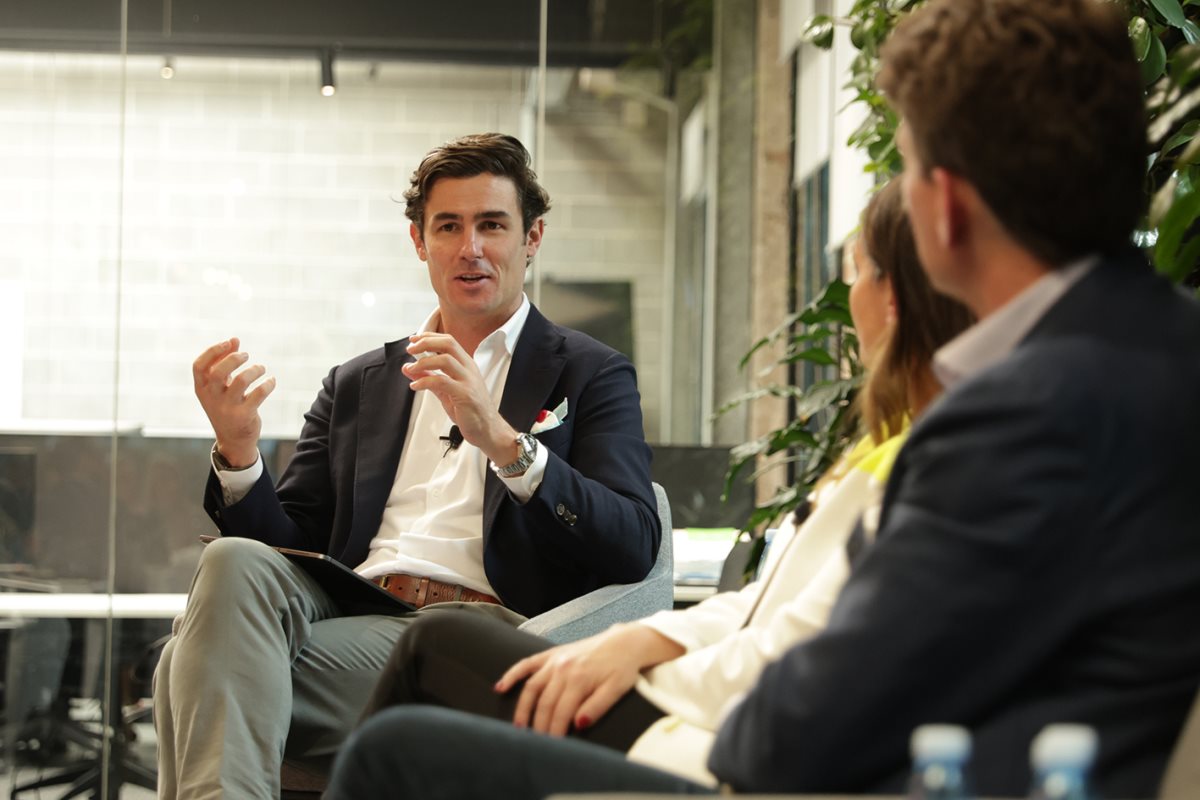
[00:31:59] Melanie Silva: Yeah, well, when you’re coaching others, and I would urge you, tap into what is holding you back.
[00:32:06] Christopher Marr: Is this therapy? Is this an intervention now?
[00:32:10] Melanie Silva: You should get on the couch. If you tap into what is actually the feeling, like, why don’t you fully disconnect, what is it that you’re afraid of?
[00:32:19] Christopher Marr: It’s insecurity, isn’t it?
[00:32:21] Melanie Silva: Then you will turn that into some sort of opportunity. You’re like, okay, well I’m worried that if I’m not there, I put extra workload on this person. You’ve just got to think through what that next step is, because you’ll probably then say, hey, guess what, Jason, would you be able to be my wingman? Would you be able to make sure that if I’m not here one day… and you turn that into a development opportunity. And then that frees you up. You’ve got to untap into what it is that you’re…
[00:32:42] Christopher Marr: This is a therapy session.
[00:32:43] Melanie Silva: I mean, take it from me, taking a year off, I can tell you.
[00:32:47] Christopher Marr: No, I think it takes a really strong leader to do that, frankly, because it’s about humility, ultimately. You are not the person keeping the ship afloat. You’re just part of a team. You spoke about that in the corporate Mental Health Alliance, Steven, earlier. And if you can build that into your culture, then when you think about their long-term objectives, you’re going to get a better outcome.
So, talking about that, there’s that famous saying about a butterfly flaps its wings over here, hurricane over there, causation, correlation, all these sorts of wonderful things. One of the challenges that we face here is, when you’re talking to a leader, it’s progressive. A leader that recognises the correlation between healthy workforce, engaged workforce, long term benefit. It goes beyond dollars.
But, course, we live in a world of reality. And so, you have to ultimately, I think to be to scale, you need to be able to demonstrate that there’s a link between productivity, engagement, caring for someone today, and then the outcome. But it’s hard to put your finger on it, isn’t it?
How do you think about that? Because you’ve both seemingly…you don’t need my validation but you seem to be doing this incredibly well, both leaders of organisations with extraordinary culture, at this front. How do you balance that? It’s an investment, ultimately. How do you balance that investment with the core output of your business? Or do you? Is it philosophical or is it hard?
[00:34:24] Steven Worrall: I’m happy to have a run. So, I think it’s a bit of what Mel was saying about your personal decision, what, what life do you want to lead? And perhaps – this is going to be philosophical – it goes back to what is your intrinsic motivation.
As awesome as it is to found a company, I mean, your intrinsic motivation in terms of what really matters in your life. Right? And if you have some appreciation for that or if you’ve spent the time thinking about that, then that I find is the starting point for a lot of things in life. Whether it’s work, your family, your relationships, the limited time we have on the planet. I told you I was going to get philosophical. We don’t have a lot of time. And so, what is it that we are here to achieve? What do we want to do? The big questions, and I’ll ask you to ponder those later this afternoon.
But in the context then of the question – and obviously the thread of the question – it’s about, as a leader – and maybe personalising this – what do I want to be remembered for? What are the things that were important to me when I started out in my career? We hire lots of people into the company. What do I want them to experience in the organisation that I lead? What do I learn over the journey that I can then apply to then be that person, or at least aspire to be, because I’m imperfect and make mistakes regularly. And acknowledging that is obviously, I think, part of it as well.
“As a leader… what do I want to be remembered for? What are the things that were important to me when I started out in my career? We hire lots of people into the company. What do I want them to experience in the organisation that I lead?”
—Steven Worrall
Managing Director ANZ, Microsoft, and the founding Chair of the Corporate Mental Health Alliance
How do I want people to feel about the work that they do? And this goes to the mission of the company now, right? In terms of why are we here? And so, yes, we are here to serve our shareholders, but our mission, without stating it here, is much bigger than that. It’s about societal impact. It’s about things that matter. We are in such a privileged position, and I think it’s important, maybe a starting point for us in the tech industry, never to forget that. Because a lot of people aren’t doing quite so well as we are in the tech industry. And the privilege to be able to work from home, the privilege to have the roles that we have, the privilege to have the impact that we have using the technology we provide, I mean, it’s just privilege piled on top of privilege. And we get to live in this beautiful country of Australia.
So, acknowledging that, working out what really is important and then in viewing my leadership and then how I show up with that, that’s the job. And so, until the moment that I stop being the MD of the business, that’ll be the thing that drives me.
And in so doing, Chris, I think that you then find some sort of balance between the short and the long term. Because do I care as much today about meeting the quarterly targets? My boss isn’t here, so it’s okay. No, I don’t. Do I care about the impact we make? Yeah. And is that what I’m going to remember when I finish? You know, I’m closer to the end than I am to the start. Yeah. And so that drives a lot of how I hope I show up.
[00:37:23] Melanie Silva: I was going to say plus one, but just in case my boss is watching, I really care about the clothing. I’m just kidding. Massive plus one to all of that stuff.
But I think, the way I kind of understood your question is, what are some of the tangible ways that you can show the impact of this stuff and what justifies your investment and time in it?
I mean, look, we don’t put these things onto a spreadsheet and try and calculate the value of them, but we had a really good example a couple of weeks ago. And it’s our 20th birthday in Australia. We’ve just done our big return to the office. We’re trying to get as many people to come into the office and experience that sort of serendipity again. And we had a celebration that was planned. Now I just want you to sort of walk a mile in the shoes of the Google executives in Mountain View. Cockatoo Island, da, da da. They think I’m taking people off.
[00:38:25] Christopher Marr: Walk a mile in the shoes of a Google executive. Did you really say that?
[00:38:26] Melanie Silva: …to Fiji or something, you know, it’s literally a party in an empty warehouse just to celebrate with burgers and beers, right? And of course, you’re looking at a macroeconomic situation that’s pretty uncertain right now. So of course, the question comes like, well, should we really go ahead with the party? All you need to do is just remind people of that cultural benefit of folks being back together again, right? And I knew it in my heart. All of the leaders in Google Australia knew in their heart that this was a really good thing for us to do. But you know, in that moment it’s probably…I’m sure it’s tempting for people to go, yes, we should just cancel the party, so the courage of it comes from just, hell no, this is going to be really important. It’s our birthday. We’re going to have beers together. We’re going to get everyone back together. We’re going to have a big boogie at the end of the night. It’s going to be great. And, you know, people respect that.
So again, that probably doesn’t answer your question because there’s no formula that I can share with you, which is what is the cultural impact of this particular event. But you’ve just got to remind people and have a culture where you can speak up about it.
The other thing I’d say is that in this war for talent that is happening, like we like to talk about it in a peaceful way, you will win and lose people off the back of this sort of stuff. That’s just a fact. You will win and lose females if you don’t have good flexibility processes and you don’t have good maternity leave structures and you don’t have great pathways. You will lose top talent if this is not a priority for your organisation. So do that math because how much does hiring cost you?
[00:40:17] Christopher Marr: Yeah, it was a verbose and pretty open-ended question or sort of proposition even. Because I think that’s the challenge, isn’t it, it’s like, as a leader, how do you put your values, your principles first, as you spoke to Steven, and lead an organisation from with that dynamic, with that first and foremost. And not all businesses, not all leaders do that. And in my opening remarks, and I think it was before you were able to join, but spoke about the paradox of leadership in this respect – that there are leaders that are putting themselves first or business objectives first or profitability first, and it’s at the expense of teams. Who may be looking at those quarterly targets like at the end of their nose, really.
And then there are other leaders that are looking to long term – how do we have real and meaningful impact? How do we put purpose right at the start and still develop some of the most successful and enterprising businesses that the world’s seen?
[00:41:16] Steven Worrall: Quick comment. I think leaders do the best with what they have. And we’ve all…you think back over all of the leaders you’ve had – good, bad, or indifferent. We all do the very best. I believe every leader turns up to do the very best they can. And that is a consequence of their experiences and their philosophy, their perspective.
And so I don’t know that there’s…you know, some leaders get better results than others, granted. I think in our businesses, as I say, we are fortunate to be leading our businesses. They’re two businesses that are doing well, full stop, and are riding a secular wave of adoption of technology that isn’t likely to stop any time soon. So I think we should acknowledge that.
But yeah, I think this goes to the heart of what we hope to build, which, you know, organisations that have long-term success, hit the short term goals but have long term success.
[00:42:04] Christopher Marr: Thank you. Well, if you join with me in thanking Steven and Mel for their contributions today.
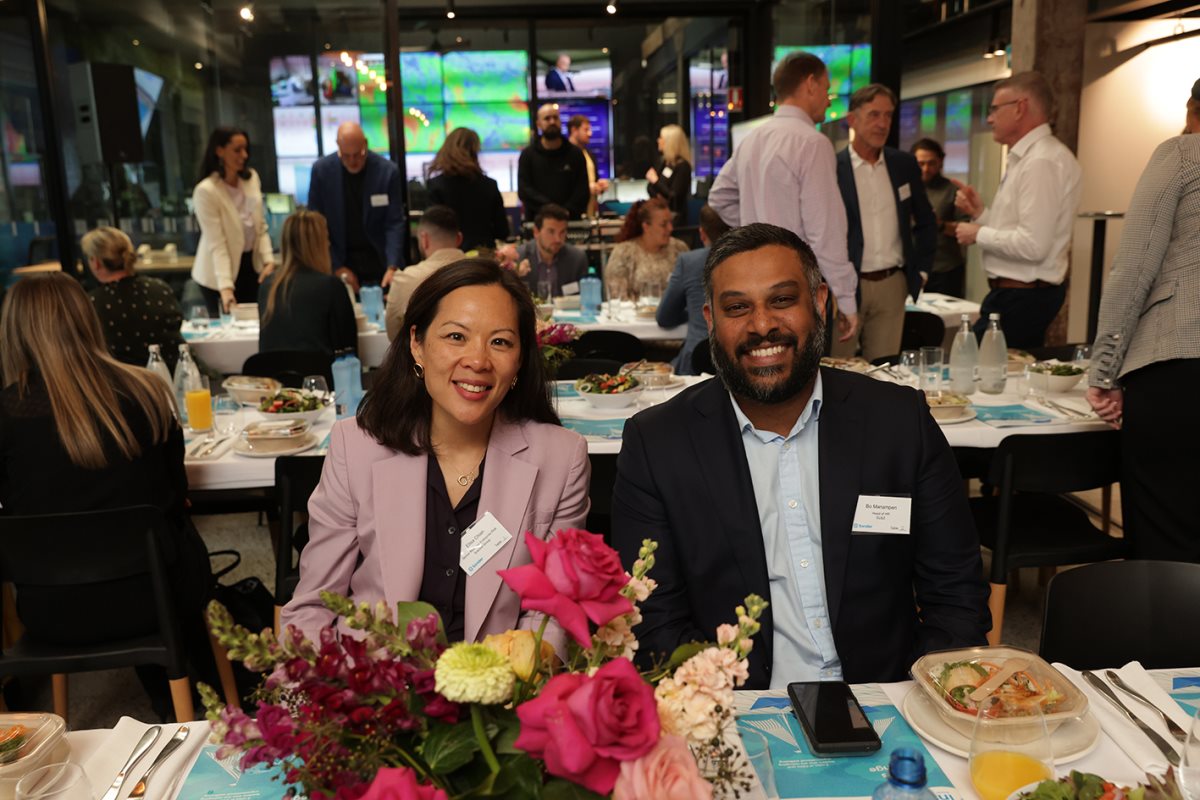
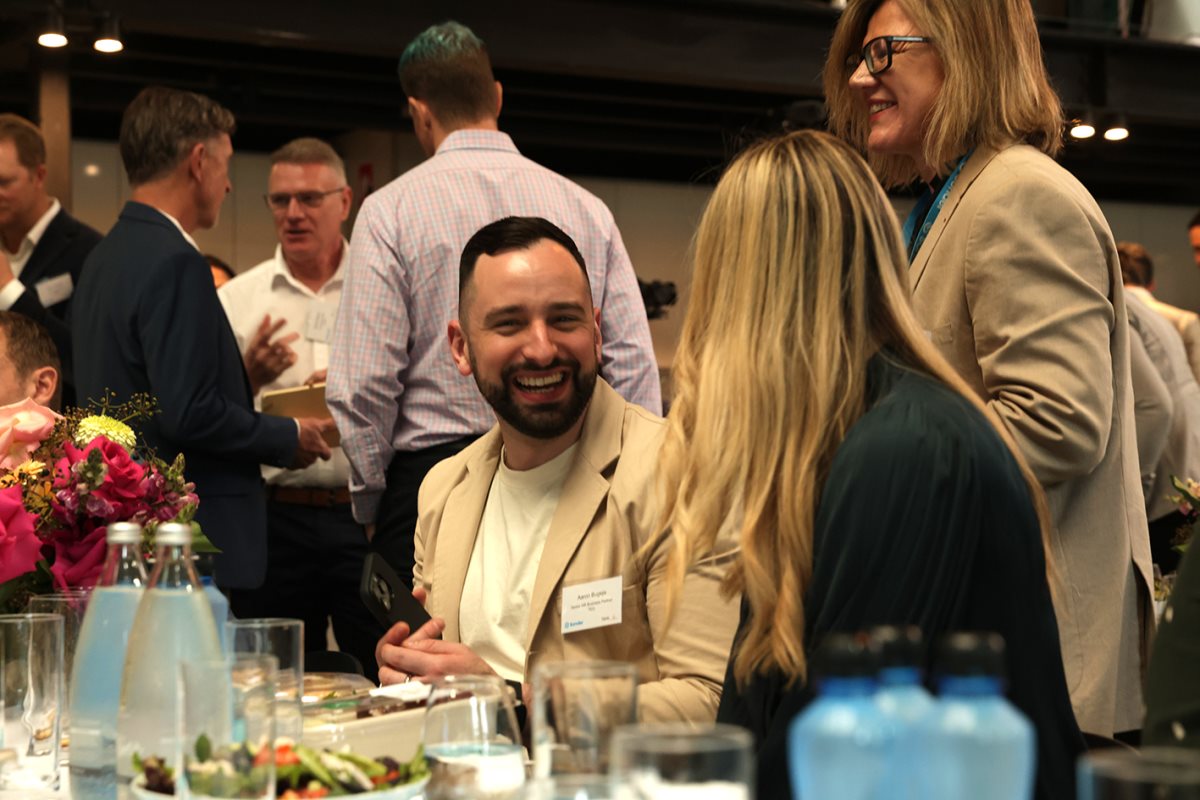
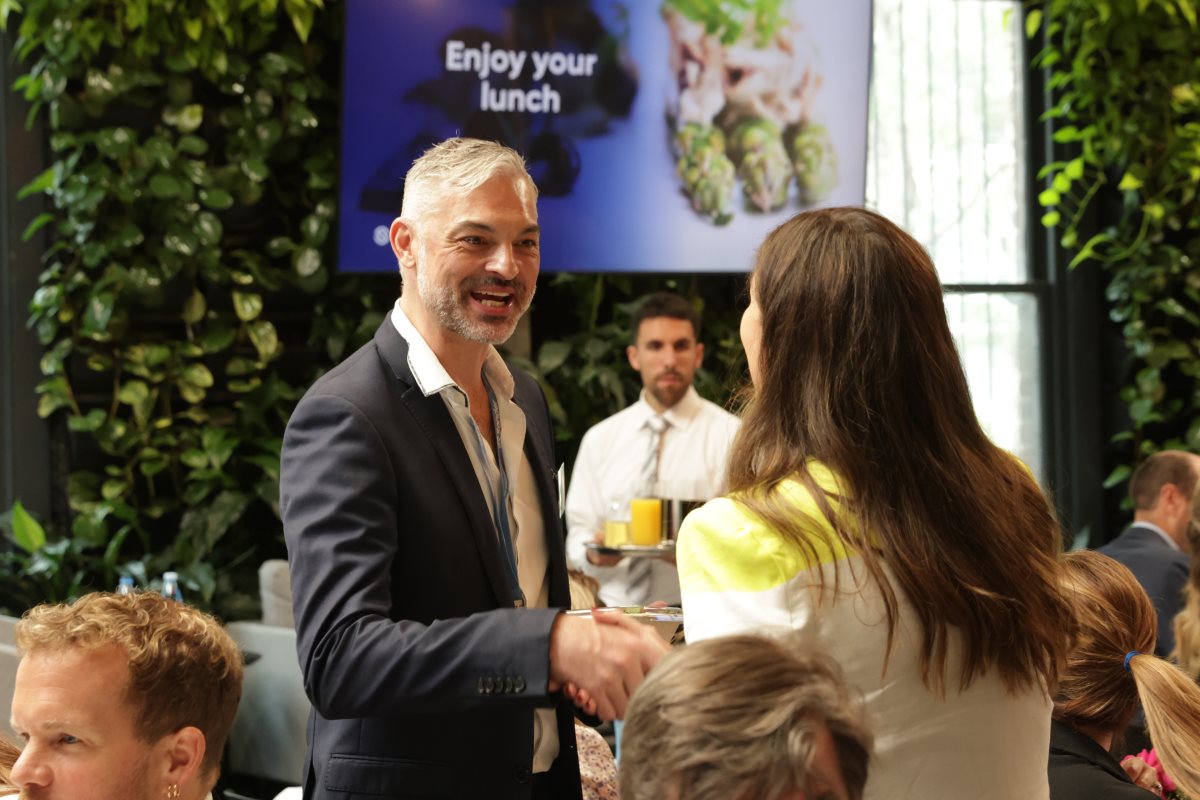
More videos from this event
The first video from this event (featuring the panel session with Heidi Beck, Elle Dias, and Christopher Marr).
We invite you to follow us on LinkedIn (and/or check our Insights blog in the coming week) for our third and final video from our Agents of change for organisational wellbeing event.
Agents of change guide
To download a complimentary copy of our Agents of change guide, please click here. This guide will:
- Explain five roles of CEOs and leaders who are reshaping organisational wellbeing;
- Share case studies from Accor, Atlassian and Woolworths; and
- Help you understand how to lead and build a healthier organisation.
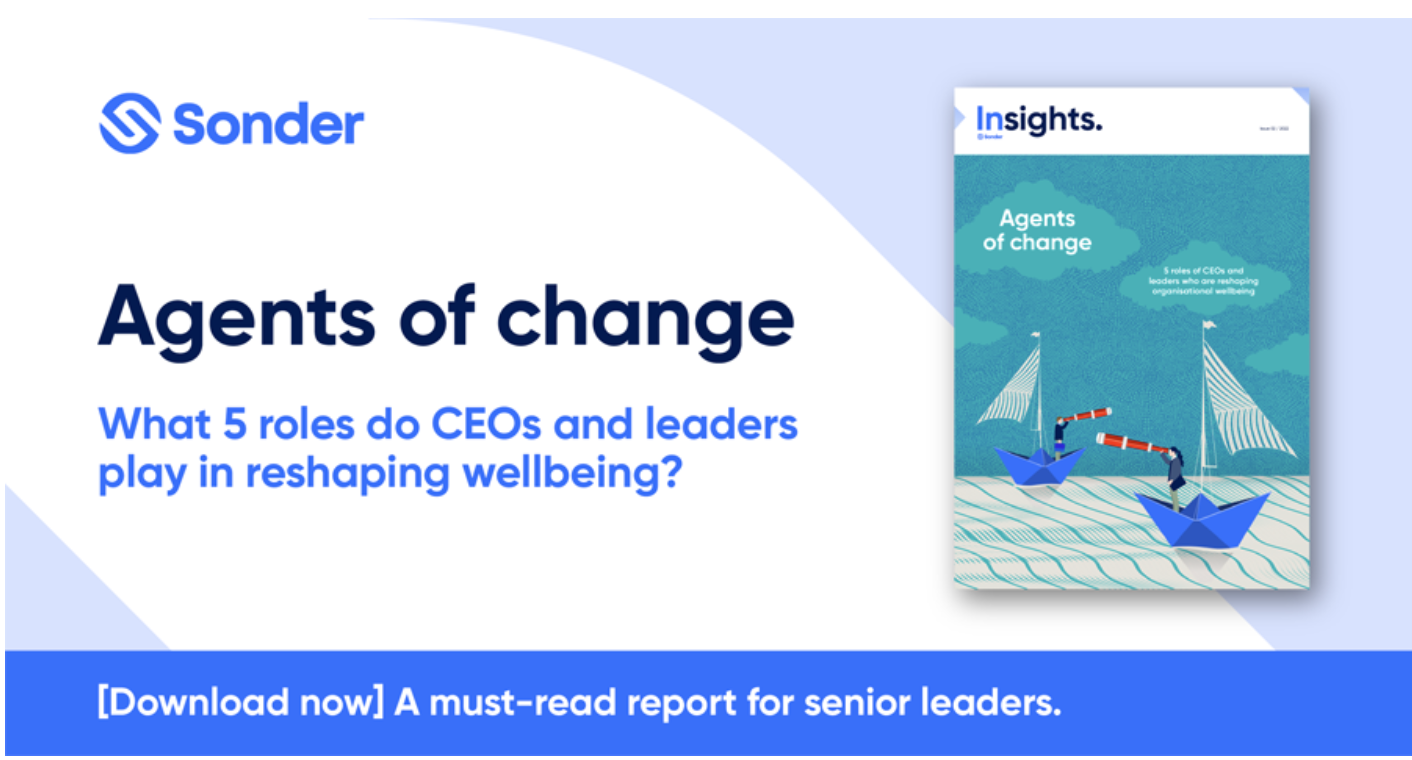
Want to learn more?
To learn more about how Sonder can help you reimagine your student and/or employee wellbeing support, we invite you to contact us here.
About Sonder
Sonder is a technology company that helps organisations improve the wellbeing of their people so they perform at their best. Our mobile app provides immediate, 24/7 support from a team of safety, medical, and mental health professionals – plus onsite help for time-sensitive scenarios. Accredited by the Australian Council on Healthcare Standards (ACHS), our platform gives leaders the insights they need to act on tomorrow’s wellbeing challenges today.
